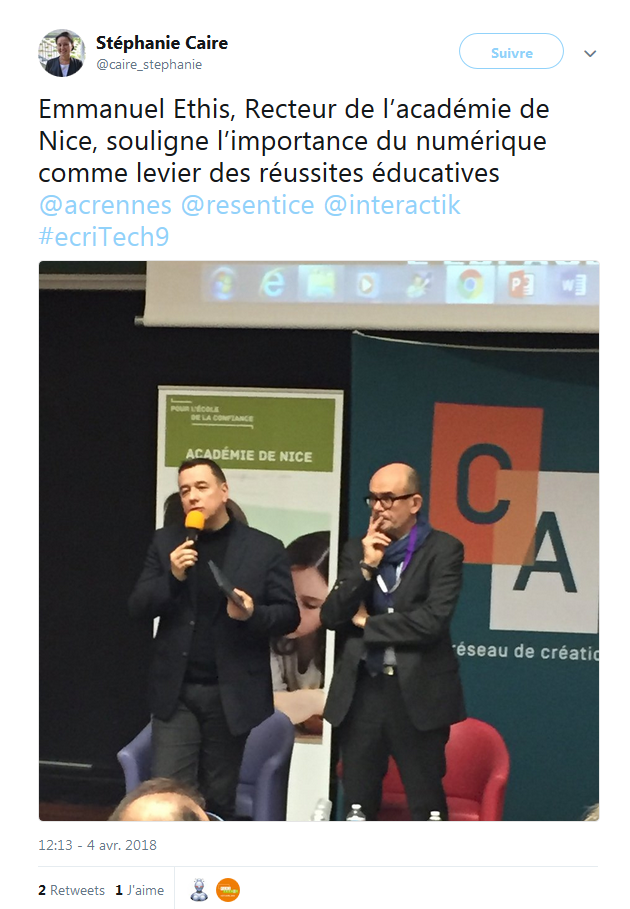- Messages : 18373
Écrans et résultats scolaires
- Loys
-
 Auteur du sujet
Auteur du sujet
Quelque chose est masqué pour les invités. Veuillez vous connecter ou vous enregistrer pour le visualiser.
Connexion ou Créer un compte pour participer à la conversation.
- Loys
-
 Auteur du sujet
Auteur du sujet
- Messages : 18373
Connexion ou Créer un compte pour participer à la conversation.
- Loys
-
 Auteur du sujet
Auteur du sujet
- Messages : 18373
Connexion ou Créer un compte pour participer à la conversation.
- Loys
-
 Auteur du sujet
Auteur du sujet
- Messages : 18373
Dans le "Café" du 16/05/18 : www.cafepedagogique.net/lexpresso/Pages/...621392950202980.aspx
Quelque chose est masqué pour les invités. Veuillez vous connecter ou vous enregistrer pour le visualiser.
Connexion ou Créer un compte pour participer à la conversation.
- Loys
-
 Auteur du sujet
Auteur du sujet
- Messages : 18373
www.oecd-ilibrary.org/docserver/1e912a10...75908859290C001EAAB9
The bottom line
Students everywhere are spending more and more time connected to the Internet, both at and outside of school, and Internet use among disadvantaged students is increasing exponentially. While this may have been good news a decade ago, today it may be a mixed blessing: evidence suggests that digitally connected students perform worse academically, particularly when they use the Internet intensively on school days, and extreme Internet users report lower levels of well-being. There are innovative, efficient and promising ways in which digital technologies are being used in education, but until they become the norm, it may be tempting to adopt the Korean approach: spend a moderate amount of time on the Internet, and even less on school days.
Connexion ou Créer un compte pour participer à la conversation.
- Loys
-
 Auteur du sujet
Auteur du sujet
- Messages : 18373
The intrusion of internet-enabled electronic devices (laptop, tablet, and cell phone) has transformed the modern college lecture into a divided attention task. This study measured the effect of using an electronic device for a non-academic purpose during class on subsequent exam performance. In a two-section college course, electronic devices were permitted in half the lectures, so the effect of the devices was assessed in a within-student, within-item counterbalanced experimental design. Dividing attention between an electronic device and the classroom lecture did not reduce comprehension of the lecture, as measured by within-class quiz questions. Instead, divided attention reduced long-term retention of the classroom lecture, which impaired subsequent unit exam and final exam performance. Students self-reported whether they had used an electronic device in each class. Exam performance was significantly worse than the no-device control condition both for students who did and did not use electronic devices during that class.
Connexion ou Créer un compte pour participer à la conversation.
- Loys
-
 Auteur du sujet
Auteur du sujet
- Messages : 18373
The participants were 4524 US children aged 8–11 years from 20 study sites. Exposures of interest were adherence to the physical activity, recreational screen time, and sleep duration guideline recommendations. [...] Overall, 2303 (51%) participants met the sleep recommendation, 1655 (37%) met screen time, and 793 (18%) met the physical activity recommendation. 3190 (71%) participants met at least one recommendation, whereas 216 (5%) of participants met all three recommendations. Global cognition was positively associated with each additional recommendation met
Compte-rendu : "Plus de deux heures d'écran par jour nuit aux capacités intellectuelles des enfants" .
Quelque chose est masqué pour les invités. Veuillez vous connecter ou vous enregistrer pour le visualiser.
Connexion ou Créer un compte pour participer à la conversation.
- Loys
-
 Auteur du sujet
Auteur du sujet
- Messages : 18373
• Measured media multitasking and mind wandering during live university lectures.
• Media multitasking rates were high and increased over time within a lecture.
• Mind wandering rates remained stable over time, consistent with prior work.
• Media multitasking more negatively associated with learning than mind wandering.
• Exploratory findings suggest media multitasking is higher in the back of the room.
Abstract
In university classrooms, the use of laptops or smartphones for purposes unrelated to the lecture is on the rise. Consequently, it is important to understand how frequently this behavior occurs, to track whether it increases throughout a lecture, and to quantify the potential costs to learning. In two studies, we measured rates of disengagement during lectures related to media use (i.e. media multitasking; Studies 1 & 2) and lecture-unrelated thoughts (i.e. mind wandering; Study 2). We also measured the impact of these behaviors on learning using quiz questions at the end of each lecture, and students’ actual course tests. In both Study 1 and 2, we found that rates of media multitasking were relatively high and increased as time elapsed in a lecture, while in Study 2, consistent with prior work, rates of mind wandering remained relatively stable. Interestingly, media multitasking - but not mind wandering - was associated with negative learning outcomes.
Connexion ou Créer un compte pour participer à la conversation.
- Loys
-
 Auteur du sujet
Auteur du sujet
- Messages : 18373
Emmanuel écrit: Les outils numériques sont à leur tour sommés de prouver qu’ils amélioreront les apprentissages et, comme de bien entendu, ils peinent à convaincre. La raison en est simple : les données probantes que la recherche parvient à collecter sont forcément fragiles en matière éducative – le fonctionnement d’une salle de classe ne répond pas à des lois physiques, chimiques ou biologiques universelles. [...] L’Inspection générale de l’Education nationale indique ainsi dans un rapport de novembre 2017 que « là où des résultats [positifs] pu être constatés (…) les établissements n’ont pas seulement bénéficié d’un équipement plus important mais ont surtout pu développer des stratégies pédagogiques plus innovantes et plus efficaces ». Et elle revient sur la « véritable leçon » d’une étude de l’OCDE datant de 2015, arguant que « pour concrétiser les promesses du numérique, les pays doivent faire en sorte que les enseignants soient aux avant-postes de l’élaboration et de la mise en œuvre de ce changement ».
Connexion ou Créer un compte pour participer à la conversation.
- Loys
-
 Auteur du sujet
Auteur du sujet
- Messages : 18373
In conclusion, heavy social media use (SMU) is negatively associated with school connectedness and academic performance among middle and high school students. These results suggest that adolescents should limit their SMU to no more than 2 h per day.
Revue systématique et méta-analyse sur "JAMA" en septembre 2019 : "Association Between Screen Media Use and Academic Performance Among Children and Adolescents" par Mireia Adelantado-Renau, Diego Moliner-Urdiales et Iván Cavero-Redondo.
In this systematic review and meta-analysis of 58 cross-sectional studies, television viewing and video game playing (but not overall screen media) were inversely associated with the academic performance of children and adolescents. In addition, the negative association between these screen-based activities and academic performance seemed greater for adolescents than for children.
Connexion ou Créer un compte pour participer à la conversation.
